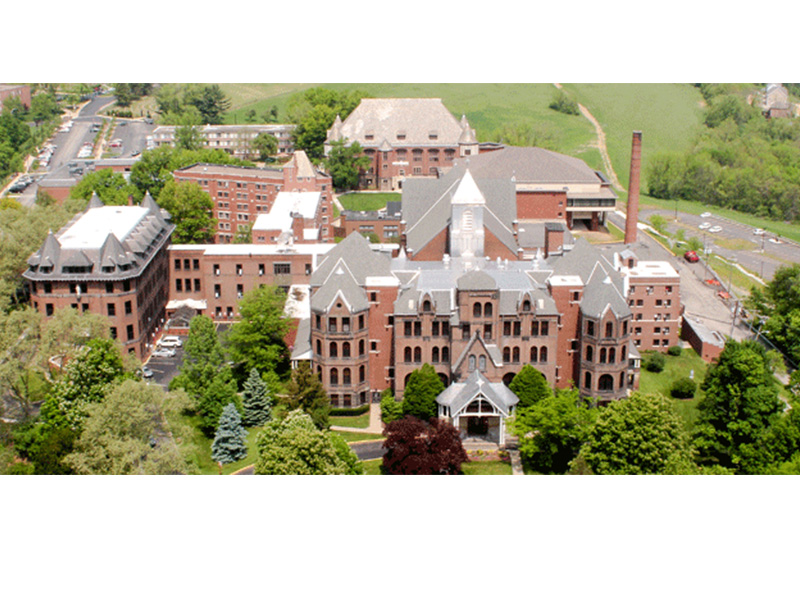Seven Hamilton, Ont., teachers are excited to get back in the classroom and share what they learned at last month’s Ethel LeFrak Holocaust Education Conference at Pennsylvania’s Seton Hill University.
Grace Centritto, Carolyn Craven, Deborah Brown, Krista Brodersen, Yvan Brochu, Krzysztof Gumieniak and Tobi Hawthorne, from the Hamilton public and Catholic secondary school boards, attended the conference Oct. 25 to Oct. 27.
The gathering, which takes place every three years, sought to enhance Catholic-Jewish understanding by equipping teachers and faculty members, especially those at Catholic institutions, to enter into discussions on the causes of anti-Semitism and the Holocaust, and to help them create curricular responses.
This year’s conference focused on Nostra Aetate, as this October marks the 50th anniversary of the Second Vatican Council’s declaration on the Catholic Church’s relationship to non-Christian religions. The declaration devoted much of its text to Judaism, rejecting the belief that the Jews bear collective guilt for the death of Jesus, and condemning anti-Semitism at any time, by anyone.
“This was an area of which not many of us had a deep understanding,” said Deborah Brown, head of the history department at Sir Allan MacNab Secondary School. “We wanted to see how we could take that next step as educators to understand what our students need to know.
“It was a phenomenal conference. I was in awe to be in the same room and to hear from such acclaimed individuals and learn from them. I came back moved and powerfully changed.”
Brown says a highlight of the conference for her was listening to a lecture by Father Patrick Desbois, who has devoted his life to researching the Holocaust, fighting anti-Semitism, and furthering relations between Catholics and Jews. Father Desbois is the grandson of a World War II French prisoner held in the Rawa Ruska Camp on the Poland-Ukraine border. He is a Catholic priest and president of Yahad – In Unum, a French organization he founded in 2004 dedicated to identifying and commemorating the sites of Jewish and Roma mass executions in eastern Europe during the war.
“After the sessions would end at 9 p.m., we would stay up talking about how we will use what we learned,” Brown said.
“We are creating a learning team to discuss how we can better use rigorous academic research with our students, how we can interpret primary texts to gain a better understanding of religious and ethical choices and relationships in genocide studies.
“Our own stance was certainly enriched, and our understanding was deepened. This will be a great way to bring new dialogue into our classrooms.”
Hamilton already has a rich history of Holocaust education. In partnership with the Hamilton Jewish Federation Holocaust Education Committee, many teachers participate in sessions to learn teaching strategies. They also take advantage of resources, including artifacts from World War II to share with students.
The annual Student Symposium on the Holocaust consists of a historical overview of the Holocaust and survivor testimony with a question-and-answer period.
The Holocaust committee also runs an Asper Human Rights and Holocaust Studies Program, in which high school applicants take part in sessions on human rights and the Holocaust, as well as participate in a trip to Washington, D.C., including a day at the United States Holocaust Memorial Museum, and they complete a community service project.
